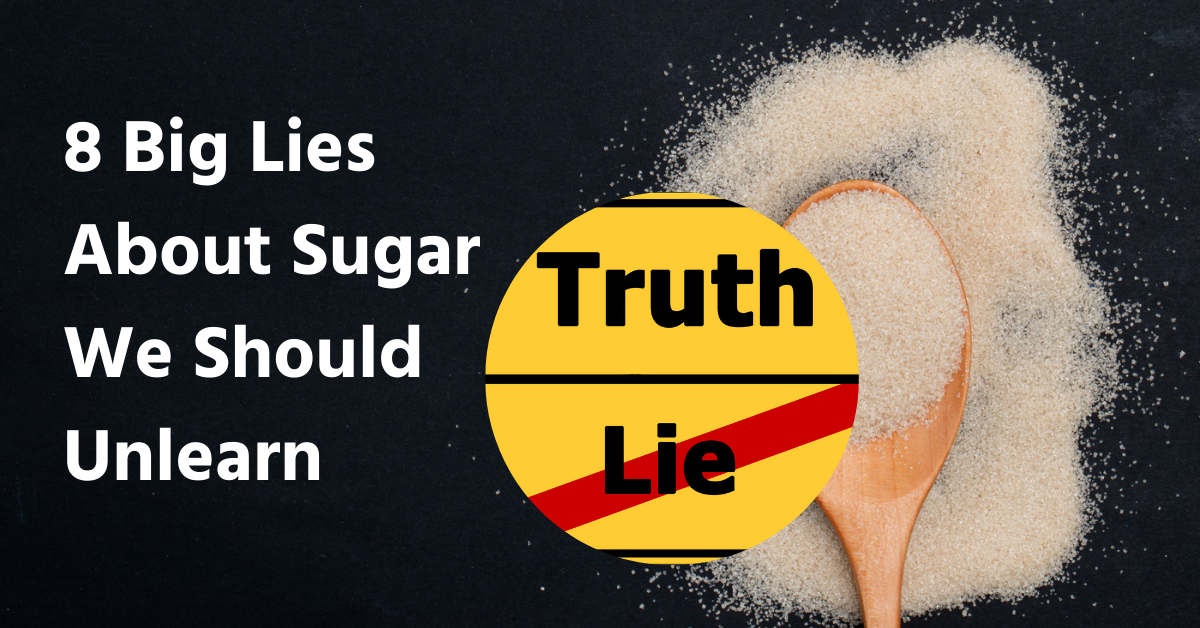Demystifying Sugar: 8 Things You Should Know
Sugar – it’s sweet, but it’s also puzzling. Most of us can agree that sugar isn’t exactly a health food, but there’s a lot of confusion about how it should fit into our diets, if at all. Let’s explore some insights into sugar, even for those who think they know their nutrition:
1. Not All Sugar Is Created Equal: We often hear that we should reduce sugar intake, but the real culprit is added sugar. This is the extra sugar put into foods to make them sweeter, like the sugar in desserts or honey on yogurt. Natural sugars in foods like fruit or milk come with vitamins and nutrients that offset some of sugar’s drawbacks. Whole fruits and plain dairy are fine; the focus should be on sources of added sugar in desserts, sugary drinks, and packaged foods.
2. Natural Sugars Don’t Make a Huge Difference: Minimally processed sweeteners, such as honey or maple syrup, do contain more nutrients than highly processed ones like white sugar. However, the nutritional difference is minimal, and your body treats all sugar sources the same way. It breaks them down into simple sugars called monosaccharides, with no distinction between table sugar, honey, or agave nectar. They all have the same impact on your weight.
3. You Don’t Need to Eliminate Sugar Entirely: Different health guidelines provide varying recommendations for daily sugar limits. While it’s a good idea to consume less sugar, it doesn’t mean you have to completely eliminate it from your diet. It’s all about moderation, as having some sugar in a balanced diet is acceptable. Various health organizations suggest different daily limits, but they all agree that some sugar is fine within those limits. The key is to manage your sugar intake and avoid overindulgence.
4. It’s Possible to Reduce Sugar Intake: A significant percentage of Americans consume too much sugar. You can gauge your sugar intake by logging your food in a tracking app for a few days. This will help you understand how much added sugar you’re consuming. Reducing sugar doesn’t have to be painful; you can start with smaller portions. Keep an eye on packaged foods too, as many contain more added sugar than you might expect. Reading nutrition labels can help you stay within your daily sugar limit.
5. Sugar Isn’t the Sole Cause of Illness: While overconsumption of sugar can lead to weight gain, eating sugar in moderation isn’t directly linked to serious health conditions like heart disease, Alzheimer’s, or cancer. It’s the excessive intake of sugar and overall calories that can contribute to weight gain, which in turn increases the risk of obesity and related health problems. The occasional treat won’t significantly harm your health, but moderation is key.
6. Sugar Isn’t a Drug or an Addiction: Comparing sugar to drugs oversimplifies the issue. While sugar can activate brain pathways associated with pleasure and reward, it doesn’t make sugar addictive like drugs. Sugar doesn’t result in brain changes that make it challenging to quit. Cravings for sugar can occur due to fluctuations in blood sugar levels, leading people to seek more sugar for energy and mood stability. The debate continues, but it’s not the same as drug addiction.
7. Sugar-Free Replacements Aren’t Always Healthier: Substituting sugary foods with low- or no-calorie sweeteners like diet soda or sugar-free cookies might not be a healthier option. These sweeteners have been linked to weight gain and health issues like high blood pressure, diabetes, and metabolic syndrome. They can disrupt blood sugar regulation and appetite control, potentially leading to obesity.
8. Low- or No-Sugar Diets Don’t Guarantee Weight Loss: Limiting sugar can help with weight loss, but it’s not a magic solution on its own. What truly matters is your overall calorie intake. Swapping sugary foods for those that are higher in calories won’t lead to weight loss. Opt for unsweetened versions of your favorite foods and gradually reduce sugar in items like oatmeal, coffee, or smoothies to support your health goals. Remember, it’s not just about cutting sugar; it’s about making balanced choices.

